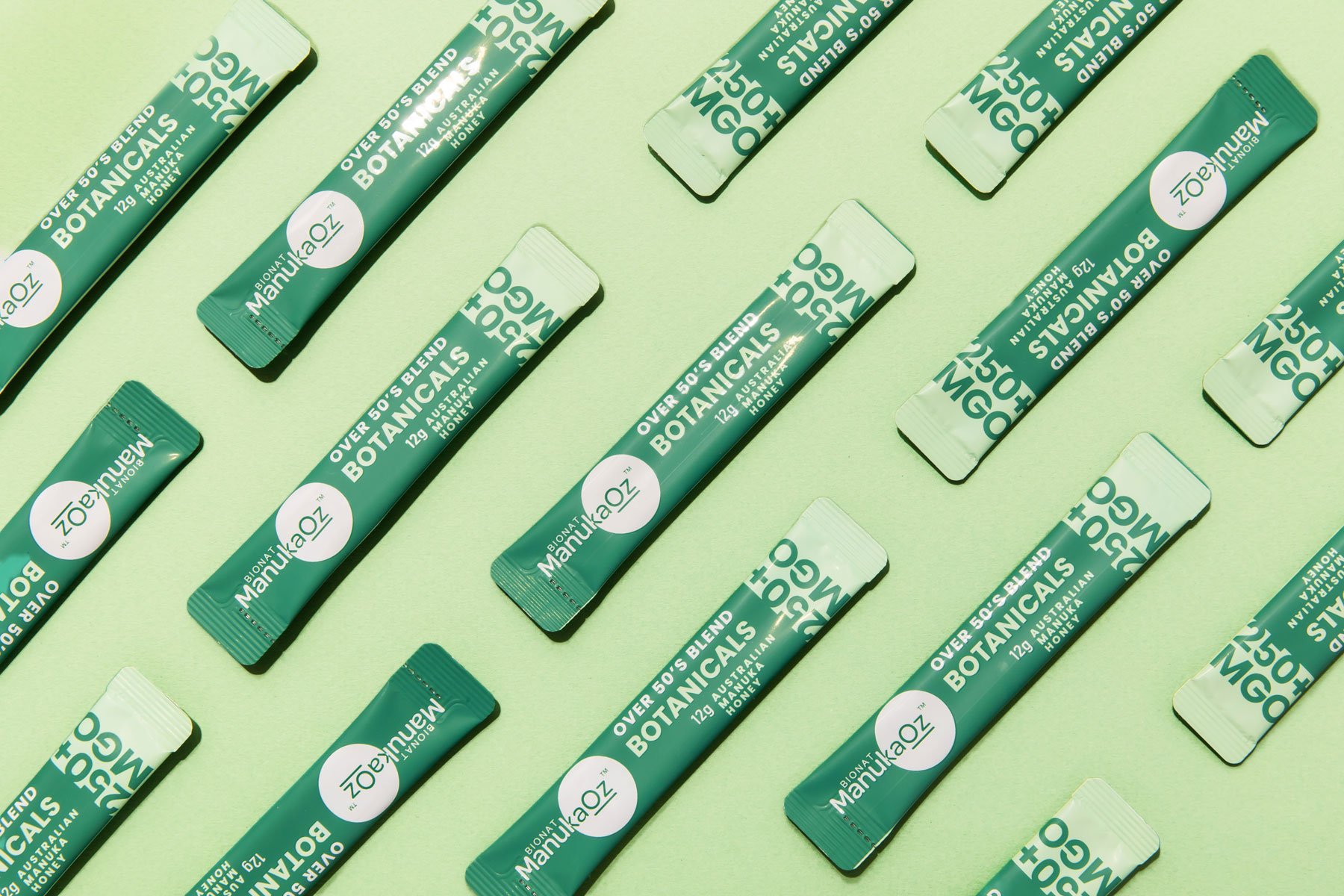
May your life be sweet, with ManukaOz!
May your life be sweet, with ManukaOz!
FAQ’S
-
Manuka Honey's uniqueness, confined to Australia and New Zealand, requires specialized beekeeping. Pure Manuka Honey comes from bees that exclusively pollinate the Manuka Flower. It’s limited harvest window of 2-6 weeks and the need for specific testing, particularly for Methylglyoxal (MGO) and dihydroxyacetone (DHA) levels, contribute to its higher cost. This stringent testing assures authenticity and quality, essential for both producers and consumers. These factors, along with its sought-after properties, contribute to its higher price compared to regular honey.
-
Manuka honey is exclusively sourced from Leptospermum trees and boasts enhanced antibacterial properties compared to conventional honey. This is attributed to its component, methylglyoxal (MGO), derived from the conversion of dihydroxyacetone (DHA) found in Manuka plant nectar. Manuka honey distinguishes itself further with inherent antimicrobial, antibacterial, antioxidant, anti-inflammatory, antiviral, and antifungal attributes. The potency of these components varies based on MGO levels, such as MGO 800 being stronger than MGO 80.
Check out this link for further information on Australian Manuka honey fact sheet.
-
Both originate from Leptospermum trees native to Australia and New Zealand.
The primary distinction is the tree species: New Zealand has Leptospermum scoparium, while Australia boasts 85 of 87 recorded Leptospermum species, including Leptospermum scoparium.
Recent studies even show that 16% of Australian Manuka-style honey surpasses New Zealand hospital-grade Manuka honey in potency.
Click HERE to see more information
-
Certainly, here are links to studies supporting various therapeutic aspects of Manuka Honey:
You can also refer to our health benefits page for more detailed information.
-
Each batch of our Manuka Honey is independently tested for authenticity, Methylglyoxal (MGO), and non-peroxide activity (NPA) levels. Membership in the Australian Manuka Honey Association (AMHA) mandates strict regulations, including Certificate of Analysis from approved laboratories for every batch. This ensures traceability from shelf to beekeeper, guaranteeing pure, natural, and authentic Australian Manuka Honey. Click HERE for more information on our quality standards.
-
Honey is not recommended for children under 12 months due to the risk of infant botulism. Children over 12 months can safely consume honey after allergy testing.
-
Raw or unpasteurized honey is cold-extracted and retains natural properties. Our honey is gently warmed to 34°C for filtering unwanted debris (the same temperature as the beehive), preserving antimicrobial attributes and MGO levels.
Gently warming the honey at room temperature to filter and bottle the honey is safe and will not alter or destroy the naturally occurring methylglyoxal (MGO) levels.
-
Honey has an indefinite shelf life. However, raw honey's antimicrobial properties decline over time. MGO levels decrease as DHA conversion diminishes. Our honey carries a 3-year best-before date.
Crystallization is considered by many that honey has gone bad however, it occurs because of the natural qualities inside the honey (specifically the ratio of glucose to fructose). Raw unheated honey will always crystallize eventually. The natural sugars in honey (glucose and fructose) will bind together and begin to form little crystals, which can start making your honey harder. Fluctuating daily temperatures can also encourage crystallization. Immersing the jar in warm water will usually remedy crystallized honey if it is not your preference.
-
No, however, people may choose to in the warmer climates if they prefer a thicker consistency or if they have an ant problem. Refrigeration halts DHA to MGO conversion, delaying MGO deterioration. It's not necessary but can be done to maintain consistency or prevent ant issues.
-
No, Western Australia's quarantine regulations prohibit unsterilized honey imports. Please refer to the Department of Primary Industries and Regional Development in Western Australia for more information. https://www.agric.wa.gov.au/
Kakadu Plum is the world's richest source of vitamin C!
Kakadu Plum is the world's richest source of vitamin C!
Australia's heart holds numerous indigenous plants with profound nutritional profiles, and within this realm, Kakadu Plum reigns supreme!
At the essence of our Botanical blends collection shines the Kakadu Plum, boasting the vitamin C potency akin to that found in an orange within every single sachet.
This translates to approximately 75% of the daily recommended vitamin C intake for adults, delivering an impressive and invigorating boost to the immune system!
